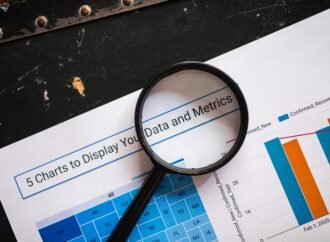Explore how data democratization empowers every employee by making advanced analytics accessible and driving a collaborative, data-driven culture across organizations.
In today’s data-driven economy, organizations are shifting from centralized, IT-dependent data management to a more inclusive approach where data is accessible to employees across all levels. This shift, known as data democratization, ensures that data is no longer confined to analysts or data scientists but is available to decision-makers, frontline employees, and business leaders alike. By providing user-friendly tools and breaking down traditional data silos, businesses can cultivate a culture of data-driven decision-making, leading to greater efficiency, agility, and innovation.
Key Aspects of Data Democratization
1. User-Friendly Tools: Making Analytics Accessible to Everyone
Traditionally, data analytics required expertise in complex query languages, coding, and statistical modeling. However, modern self-service analytics platforms have simplified the process, allowing users with little to no technical expertise to generate insights.
- Power BI, Qlik Sense, and Tableau provide interactive dashboards that allow employees to explore data through visualizations, drag-and-drop interfaces, and AI-driven recommendations.
- Google Looker and Microsoft Fabric enable deeper data integration and analysis without requiring coding expertise.
- Natural Language Processing (NLP) features allow users to query data using simple, conversational language instead of complex SQL queries.
These intuitive tools empower employees in marketing, sales, HR, and operations to make data-backed decisions independently, reducing dependency on data teams and accelerating business processes.
2. Breaking Down Data Silos and Enhancing Collaboration
In traditional enterprises, data is often locked within different departments, limiting access and slowing decision-making. Data democratization eliminates these silos by creating centralized, shared repositories that enable seamless collaboration.
- Cloud-based data warehouses and lakehouses (e.g., Snowflake, Databricks, and Google BigQuery) allow organizations to store vast amounts of data in a structured, accessible format.
- Role-based access controls ensure that employees get access to relevant data while maintaining security and compliance.
- Cross-functional collaboration becomes easier as teams from marketing, finance, and operations can analyze and act on shared datasets.
When employees have real-time access to consistent data, they can align strategies, identify opportunities, and drive innovation together.
3. Enhancing Decision-Making and Business Agility
With democratized data, businesses can react swiftly to market shifts, customer demands, and operational inefficiencies. When decision-makers have direct access to relevant insights, they can make informed choices without waiting for reports from analysts.
- Retailers can optimize inventory in real time based on purchasing trends.
- Manufacturers can predict equipment failures and schedule preventive maintenance.
- Financial teams can detect fraud by identifying unusual transaction patterns instantly.
By reducing delays in accessing insights, organizations improve responsiveness, reduce costs, and enhance customer experiences.
4. Building Data Literacy Across the Organization
Providing access to data is not enough—employees must also know how to interpret and apply insights effectively. Companies that invest in data literacy training ensure that their workforce can use data responsibly and confidently.
- Workshops, certifications, and e-learning programs help employees develop analytical thinking skills.
- Gamification and real-world case studies encourage teams to apply data in their daily tasks.
- AI-driven assistants within analytics platforms guide users in analyzing trends and drawing conclusions.
A data-literate workforce reduces reliance on gut instincts and fosters a culture of evidence-based decision-making.
The Future of Data-Driven Organizations
Embracing data democratization is not just about granting access to data—it’s about building a data-driven culture where insights drive actions at every level. Organizations that integrate user-friendly tools, foster collaboration, enhance agility, and promote data literacy will outpace competitors and create long-term value.






















